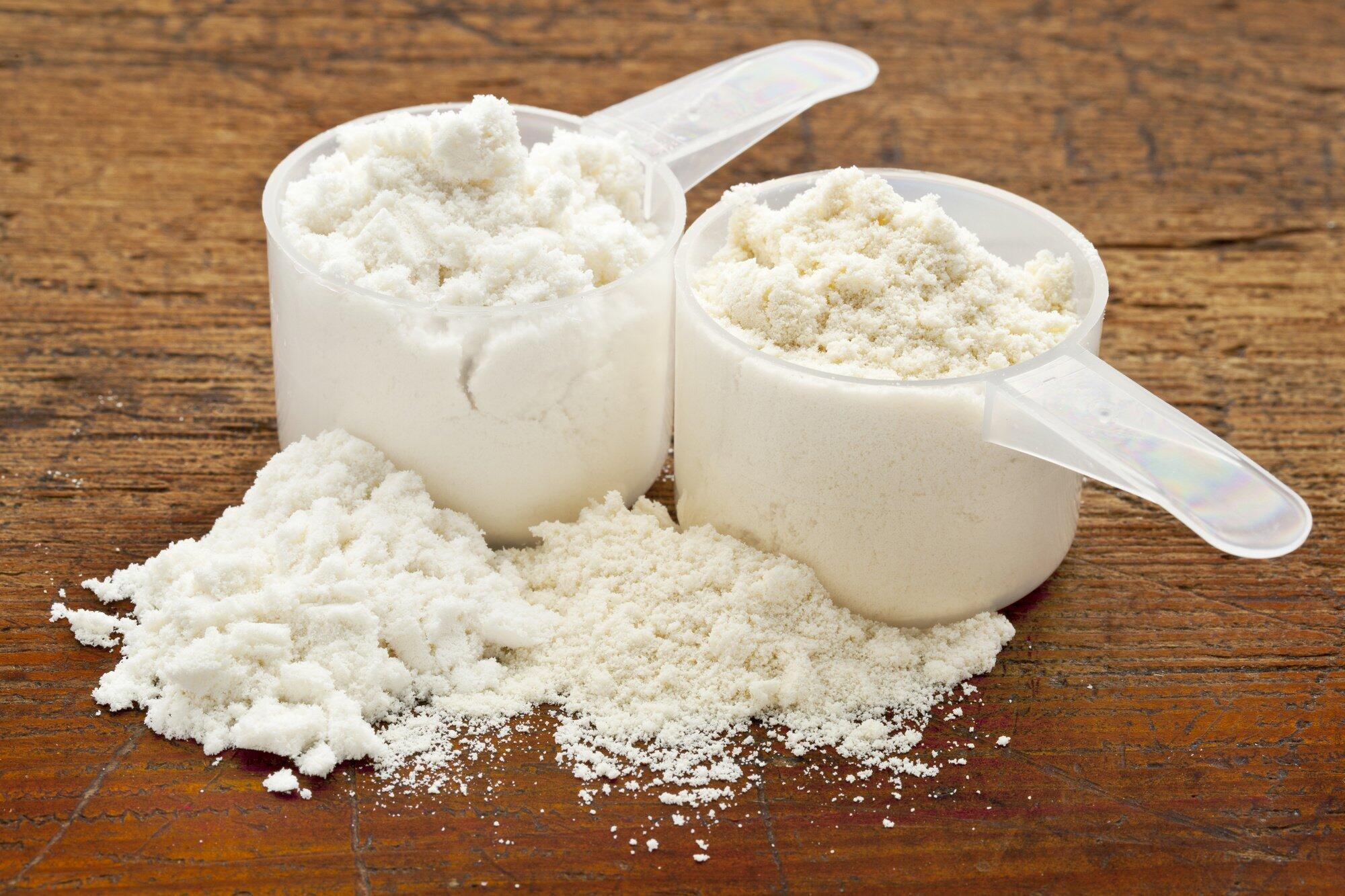If you pay attention to health trends, you already know it's hard to beat the popularity of protein. Online interest in this essential macronutrient hit a five-year high in early 2023 and didn't stop there, with searches for the term "high protein" increasing by a whopping 32% from 2022 to 2023.
Ask any fitness enthusiast, and they'll explain that you should be snacking on protein anytime you get active. However, if you're new to working out or you haven't paid much attention to your diet, you may be wondering about the timing.
Should you eat a protein bar before or after a workout? When do you get the most benefits from protein as a nutritional powerhouse?
We've got you covered! Let's take a look at when to fit a protein bar into your day, how much protein you should aim for, and how to choose the right workout snack bar.
Who Should Be Eating Protein Bars?
If you only know one thing about protein, you're probably aware that it's an essential nutrient for building muscle. That's why it has become a well-known staple in the kitchens of bodybuilders around the world.
However, protein isn't only for people looking to build muscle!
A high protein intake is a must for any active individual. Whether you're an endurance athlete or you don't like going beyond a light sweat, protein is a crucial resource for reaching your health goals. That's why small, delicious, and portable protein snack bars are a no-brainer!
Benefits of Protein Before a Workout
It should come as no surprise that fueling your body with protein before exercising is a smart move. Let's look at why and when to do it:
Improving Performance
This crucial macronutrient can help boost athletic performance during your workout.
Because it increases muscle protein synthesis, protein improves muscle recovery and performance as well. Protein may even help prime your muscles to adapt to your training efforts, which can be great if you have a longer endurance routine planned.
Timing Your Pre-Workout Snack
Keep in mind that the timing of your pre-workout protein snack is important.
Eating protein sooner rather than later won't affect how your body uses that protein, but it may affect your comfort during your sweat session. Most experts recommend eating large meals around 2-3 hours before exercising for this reason: a large meal may impact your performance, causing digestive discomfort that can even cut your workout short.
That's why protein bars are such a smart move. This lighter fare is easy to digest, allowing you to fill up on the energy you need without putting a strain on your stomach. Grabbing a protein bar is also a great way to feel satiated and curb short-term hunger, allowing you to focus when it counts.
If you choose to snack on a protein bar, try to do so at least 30 minutes in advance of your workout if you anticipate digestive issues.
Benefits of Protein After a Workout
The advantages of protein don't disappear once you're cooling down. In fact, protein is a great way to boost your recovery!
Rebuilding Depleted Fuel Stores
After a sweat session, your muscles will have used a lot of their glycogen, a major source of fuel. Depending on the workout, your muscles will also have down their muscle proteins.
As you begin recovering from your workout, your body tries to rebuild these stores. It regrows your muscle fibers using protein, and it ramps up your glycogen stores again with carbs.
Protein bars can help with this as well! As the ideal post-workout snack, protein bars contain hefty amounts of protein as well as some of the carbs you need to enhance your recovery. They can help your body decrease the breakdown of muscle protein and build new muscle tissue.
Reducing Inflammation
Protein may help you fight inflammation after exercise as well. Because muscle-strengthening activities involve damage to your muscle fibers, your body may ramp up inflammation. Protein may help mitigate this response, helping you feel less sore.
Timing Your Post-Workout Protein
You may have heard of a much-debated nutrition theory called the "anabolic window," also nicknamed the "protein window." This is the idea that eating protein within 30 minutes of exercising is your best chance to boost your muscle gains and recovery. After this period, eating protein is supposed to be less helpful.
This is largely a myth. While eating protein after a workout is helpful in general, studies suggest that sticking to that narrow 30-minute window will not help your recovery any more than a longer delay. It's not even clear where that short timeline first came from!
If you feel most comfortable eating protein within 30 minutes of your workout, feel free to do so. If you'd rather wait longer, you won't see reduced results.
The only exception is if you've worked out after fasting. In this case, eating a protein bar soon after a workout is a smart move, as it replenishes the protein and carbs your body desperately needs in its fasted state.
Should You Eat a Protein Bar Before or After a Workout?
It's clear that eating protein before and after a workout can be great for your health, but which option is better?
The answer is simple: whichever time works best for you!
Though fitness influencers sometimes promise that you can "game the system" by timing your protein intake, research suggests that this is untrue. Both pre and post-exercise protein consumption will have the same effect on muscle adaptations. As a result, you should snack on your protein bar whenever you have a convenient moment, whether you're gearing up for a workout or winding down after one.
Instead of timing, the most important thing is ensuring a sufficient daily protein intake.
A sufficient protein intake can help maximize your muscle strength, build your body's fuel stores, and improve your strength gains. Making sure you're getting enough protein is the single best thing you can do, nutrition-wise, to make sure you're getting the most out of your exercise regimen!
In addition to getting a bit of extra protein around your workouts, always focus on getting a hefty portion of protein with each meal.
How Much Protein Do You Need?
Protein bars are a great way to make sure you're getting at least your recommended daily allowance (RDA) of protein, or 0.36 grams per pound of body weight.
However, keep in mind that this is the minimum amount you should get. This amount is recommended for people with sedentary to low-activity lifestyles as well as those who aren't trying to gain or lose weight or muscle mass. Because the RDA was formulated during World War II, it can feel a little outdated!
If you're an active individual, this recommended minimum may not be enough to fuel your body. It also may not be ideal if you want to build muscle, lose weight, or reach other health goals.
Your RDA of protein is around 8-10% of your daily intake. As a rule of thumb, modern experts recommend getting between 10-35% of your daily calories from protein instead.
This may vary depending on your goals. If you need protein for muscle training, you may want to veer toward the higher end of that window, for example. If you prefer endurance routines, a more moderate percentage may be ideal.
Consider checking an online protein calculator to estimate your intake. You can also talk to a nutritionist or personal trainer to set more specific goals. Your protein intake will also vary with your health, gender, age, and other factors.
Choosing the Right Protein Bar
Whether you need protein for weight loss or bodybuilding, you'll want to make sure you're choosing a workout snack that goes the extra mile. As you sift through your options for protein bars, here are some things to consider:
Protein Source
When you can, choose complete protein sources. These are proteins that contain all nine essential amino acids.
Protein bars that include whey and soy protein, for example, are complete protein sources packed with health benefits. Many bodybuilders consider them the gold standards of protein! For vegetarians and vegans in particular, soy (a plant-based protein) is the smarter choice.
Carbohydrates
As we've mentioned above, carbs are an essential pre- and post-workout building block your body needs during recovery. You'll want a protein bar with enough carbs to boost your recovery without going overboard. Aim for no more than 30g of carbohydrates per protein bar.
Fats
Healthy fats are great for your body, which is why nut-based protein bars can pack a powerful punch. However, steer clear of trans fats, and try to choose a snack option with fewer than 3g of saturated fat.
Grab Your New Favorite Protein Bar
At Diet on Sale, we know that snacking on protein is a great way to feel full, rebuild muscle, and get the energy you need to go the extra mile. Whether you prefer to grab a protein bar before or after a workout, our products can take your exercise routine to the next level.
Ready to find your next favorite protein bar? From chocolate to peanut butter to crisp bars, our collection is packed with delicious options for any workout. Shop our collection of protein bars today!




Leave a comment
This site is protected by hCaptcha and the hCaptcha Privacy Policy and Terms of Service apply.